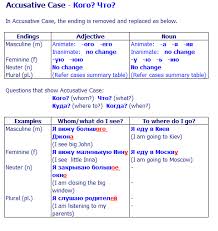accusative
英 [əˈkjuː.zə.tɪv]
美 [əˈkjuː.zə.t̬ɪv]
- adj. 宾格的
- n. 宾格

英语词源
- accusative (n.)
- grammatical case whose primary function is to express destination or goal of motion, mid-15c., from Anglo-French accusatif, Old French acusatif, or directly from Latin (casus) accusativus "(case) of accusing," from accusatus, past participle of accusare (see accuse).
Translating Greek ptosis aitiatike "case of that which is caused," on similarity of Greek aitiasthai "accuse." Greek aitia is the root of both, and means both "cause" and "accusation," hence the confusion of the Romans. A more correct translation would have been casus causativus. Typically the case of the direct object, but also sometimes denoting "motion towards." Nouns and adjectives in French, Spanish, and Italian, languages from which English has borrowed heavily, generally were formed from the accusative case of a Latin word.
权威例句
- 1. Most transitive verbs govern the accusative case in German.
- 在德语中,许多及物动词左右着宾格.
- 2. I. Types of narrow - sense accusative subject sentence in newspaper news lead.
- 报纸新闻导语狭义受事主语句的构成成分分析.
- 3. The default case in English is accusative.
- 在英文中预设格是宾格.